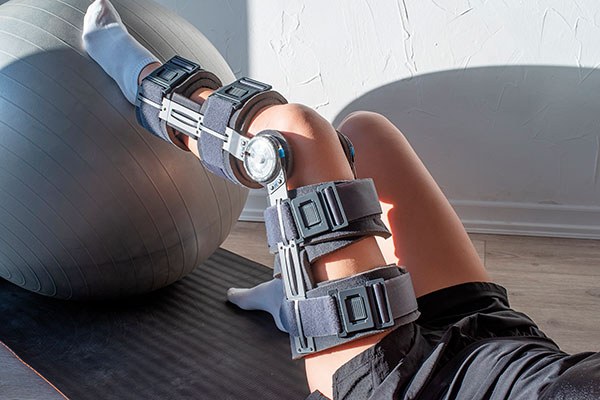Treatment Options to Help Overcome Knee Pain for Sports Enthusiasts
Mar 12, 2024 03:31AM ● By Family Features
Millions of people experience chronic pain, with knee pain among the most common. Athletes and active adults know the impact activities like running and skiing can have on their knees, but when chronic knee pain makes it difficult to do those activities, or even day-to-day tasks like walking up the stairs, people may often face challenges.
According to the journal “Cartilage,” unlike other tissues, cartilage does not repair itself and, without proper treatment, can worsen over time and become more difficult to treat. However, options like FDA-approved knee cartilage repair surgery MACI (autologous cultured chondrocytes on porcine collagen membrane) uses a patient’s cells to help repair cartilage defects and may help alleviate knee pain.
“Sports-related pain should be evaluated quickly, especially when it’s difficult to put weight on the knee, swelling occurs or there is restricted range of motion,” said Dr. Alexander Meininger, orthopedic surgeon and MACI consultant.
 Justin Keys, a former patient of Meininger and avid skier, knows that the long-term outcomes of knee cartilage surgery can be worth the short-term sacrifices. After several injuries, including an ACL injury, Keys struggled with most activities except walking on flat, paved surfaces. After consulting with Meininger, Keys chose knee cartilage repair to help get back to his active lifestyle.
Justin Keys, a former patient of Meininger and avid skier, knows that the long-term outcomes of knee cartilage surgery can be worth the short-term sacrifices. After several injuries, including an ACL injury, Keys struggled with most activities except walking on flat, paved surfaces. After consulting with Meininger, Keys chose knee cartilage repair to help get back to his active lifestyle.
Keys considered whether to manage the injury as-is or choose MACI and undergo rehabilitation to potentially get back to his favorite activities in the future. He knew he could no longer use short-term relief methods and had to address his pain with a treatment to help provide lasting relief.
For athletes like Keys who want to fix knee pain, it’s important to consider these steps:
Discuss Options with Your Doctor
Patients should talk to their doctors and undergo an MRI to help assess the internal structures of the knee. Meininger recommends patients and their doctors discuss options forlong-term knee restoration health, preserving function for future decades and recognizing the short-term sacrifice.
Set Yourself Up for Success
Experts like Meininger suggest patients take steps ahead of surgery to help their recovery.
“The important thing is to be as fit as possible and use the preseason months to undergo surgery and rehab,” Meininger said.
Patients can take steps to prep their home for recovery, which may include:
- Bringing necessities down from hard-to-reach shelves
- Moving furniture to ensure clear pathways
- Installing shower safety handles to minimize potential falls
The Road to Rehab and Recovery
Rehabilitation takes time and everyone’s experience is unique. It can be as much of a mental challenge as it is physical. Committing to a physical therapy regime, staying hydrated and eating well are important aspects to support recovery. Patients should talk to their doctors with questions and before starting any exercises.
IMPORTANT SAFETY INFORMATION
Do not use if you are allergic to antibiotics such as gentamicin or materials from cow or pig; have severe osteoarthritis of the knee, other severe inflammatory conditions, infections or inflammation in the bone joint and other surrounding tissue or blood clotting conditions; had knee surgery in the past 6 months, not including surgery for obtaining a cartilage biopsy or a surgical procedure to prepare your knee for a MACI implant; or cannot follow a rehabilitation program post-surgery.
MACI is used for the repair of symptomatic cartilage damage of the adult knee. Conditions that existed before your surgery, including meniscus tears, joint or ligament instability or alignment problems should be evaluated and treated before or at the same time as the MACI implant. MACI is not recommended if you are pregnant. MACI has not been studied in patients younger than 18 or over 55 years of age. Common side effects include joint pain, tendonitis, back pain, joint swelling and joint effusion. More serious side effects include joint pain, cartilage or meniscus injury, treatment failure and osteoarthritis. See Full Prescribing Information for more information.
Find more information by visiting MACI.com.
*Testimonials by MACI patient and paid Vericel consultant
Photos courtesy of Shutterstock
